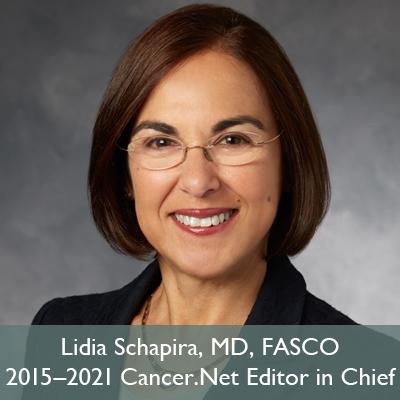
Michelle was sitting across from me as I typed her chemotherapy orders. Then, I went on to schedule her laboratory tests and next appointment. I do this collaboratively with patients and offer to give them a printed copy. This gives us a chance to confirm the plan and to adjust schedules to meet their needs and those of the treatment plan. I also believe this practice helps us work together as a team of experts. Michelle is the expert in matters concerning her life and her lived experience with cancer, and I am the expert in treating the disease. There is plenty of research that proves what we intuitively know: a person who is well informed and invested in her treatment is more likely to seek out the resources she needs to cope with the physical and emotional side effects of rigorous treatment.
Michelle let out a nervous laugh and admitted that she did not really know the names of the drugs she was receiving. She had been too nervous to concentrate on the technical details during her initial consultation with my colleague. Then she found that she was going to her appointments and not paying much attention to the actual treatment protocol. She added that she trusted her team’s expertise and felt well cared for. I was surprised by this and assured her that I appreciate her trust. I went on to say that at some point I would like to review the treatment with her, whenever she felt ready.
It is not uncommon to hear a patient say that he or she could not really concentrate or retain information during their first consultation with the oncologist or the team of cancer specialists. Even nurses and physicians, who have extensive knowledge of cancer and its treatments, report feeling anxious when they are the ones sitting in the patient’s chair and it is their turn to receive advice and treatment. Having a friend or relative come with you can help. That friend or relative can advocate for you, ask questions, and take notes that can be reviewed later, when everybody feels more relaxed. 
We have learned in recent years to appreciate the importance of effective and respectful communication between clinicians and patients. When I trained as a doctor and oncology fellow, there was little formal instruction in communication skills. Today, every medical student, resident, and oncology trainee has to learn and demonstrate competence in basic and advanced communication skills. Today, we favor fully informing patients of their diagnosis and encourage them to share the responsibility of choosing a treatment. To do this, we also offer access to laboratory test results and scans and encourage patients to become informed and active in managing their illness. How much information is actually exchanged depends very much on the communication style of individual clinicians and the preference of the patient and his or her loved ones.
In some respects, every encounter between patient and clinician serves as a mutual learning opportunity, with the goal of creating a respectful and trusting relationship that feels comfortable and fluid.  Not every encounter will be as successful as we want it to be; we all have good and bad days. But solid partnerships are built upon a common goal, and that goal may be as simple and straightforward as “treating cancer.” Both patient and clinician need to cultivate the art of talking and listening, clarifying ideas or concepts to avoid misunderstandings, sharing important data, and debriefing at the end of the visit to make sure they have understood each other well.
Not every encounter will be as successful as we want it to be; we all have good and bad days. But solid partnerships are built upon a common goal, and that goal may be as simple and straightforward as “treating cancer.” Both patient and clinician need to cultivate the art of talking and listening, clarifying ideas or concepts to avoid misunderstandings, sharing important data, and debriefing at the end of the visit to make sure they have understood each other well.
There is no “right” way to communicate effectively. We need to be aware of challenges and opportunities in every interaction and between different people. Patients and oncologists can learn to view each situation from the other’s perspective. By doing this, they can find a comfortable way of relating as they face the challenge of treating cancer together, as a team.
